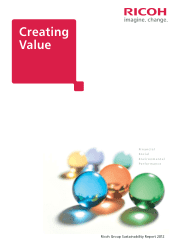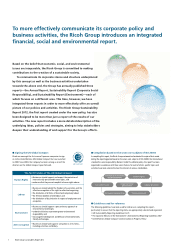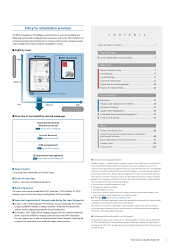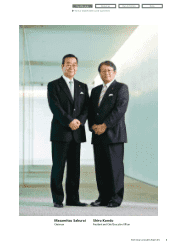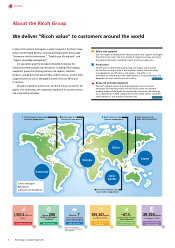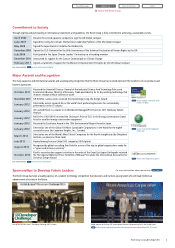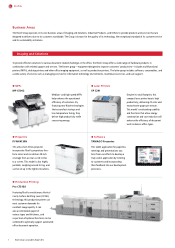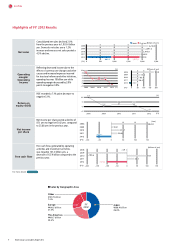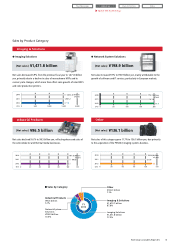Ricoh 2012 Annual Report Download - page 2
Download and view the complete annual report
Please find page 2 of the 2012 Ricoh annual report below. You can navigate through the pages in the report by either clicking on the pages listed below, or by using the keyword search tool below to find specific information within the annual report.
Ricoh Group Sustainability Report 20121
To more effectively communicate its corporate policy and
business activities, the Ricoh Group introduces an integrated
financial, social and environmental report.
Based on the belief that economic, social, and environmental
issues are inseparable, the Ricoh Group is committed to making
contributions to the creation of a sustainable society.
To communicate its corporate stance and structure underpinned
by this concept as well as the business activities undertaken
towards the above end, the Group has annually published three
reports—the Annual Report, Sustainability Report (Corporate Social
Responsibility), and Sustainability Report (Environment)—each of
which focuses on a different area. This time, however, we have
integrated these reports in order to more effectively offer an overall
picture of our policies and activities. The Ricoh Group Sustainability
Report 2012, the first report created under the new policy, has also
been designed to be more than just a report of the results of our
activities. The new report includes a more detailed description of the
underlying ideas, policies and strategies, aiming to help stakeholders
deepen their understanding of and support for the Group’s efforts.
■ Signing the UN Global Compact
Ricoh was amongst the first wave of Japanese companies to sign
on to the United Nations (UN) Global Compact that was launched
in 2000. Since 2008, the Company has been serving as one of the
directors on the Global Compact Japan Network.
■ Compilation based on the seven core subjects of ISO 26000
In compiling this report, the Ricoh Group reviewed and evaluated its major efforts made
during the reporting period based on the seven core subjects of ISO 26000, the international
standard for social responsibility (below). Under this editorial policy, this report has been
organized in accordance with these seven themes, for each of which, specific topics and
activities have been selected to meet the interest of various stakeholders.
■ Guidelines used for reference
The following guidelines have been used for reference in compiling this report,
particularly to ensure that the reporting items are appropriately selected and organized.
• GRI Sustainability Reporting Guidelines (G3.1)
• The Japanese Ministry of the Environment’s Environmental Reporting Guidelines 2007
• United Nations Global Compact Communication on Progress Policy
Human Rights
Labour
Environment
Anti-corruption
• Businesses should support and respect the protection of
internationally proclaimed human rights; and
• make sure that they are not complicit in human rights abuses.
• Businesses should work against corruption in all its forms,
including extortion and bribery
• Businesses should support a precautionary approach to
environmental challenges;
• undertake initiatives to promote greater environmental
responsibility; and
• encourage the development and diffusion of environmentally
friendly technologies.
• Businesses should uphold the freedom of association and the
effective recognition of the right to collective bargaining;
• the elimination of all forms of forced and compulsory labour;
• the effective abolition of child labour; and
• the elimination of discrimination in respect of employment and
occupation
The Ten Principles of the UN Global Compact
Community involvement
and development Human rights
Fair operating practices The environment
Organizational
governance Labour practicesConsumer issues

